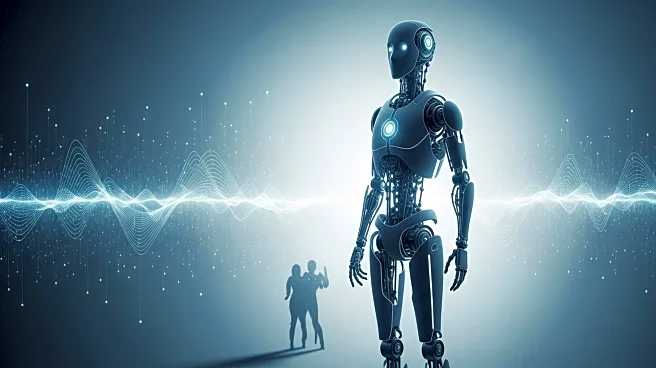What's Happening?
Federal Reserve Chair Jerome Powell has indicated that artificial intelligence may be contributing to concerning unemployment rates, particularly among young graduates. The latest jobs report revealed a significant slowdown in hiring, with only 22,000 jobs added in August compared to 79,000 in July. Powell suggested that companies might be increasingly utilizing AI, reducing the need for entry-level positions typically filled by recent graduates. This trend is supported by a New York Fed report highlighting deteriorating labor market conditions for 22 to 27-year-olds. The impact of AI on employment is further evidenced by companies like Fiverr, which announced layoffs to become an 'AI-first company.'
Why It's Important?
The potential link between AI and rising unemployment rates among young graduates poses challenges for economic policy and workforce development. If AI continues to replace entry-level jobs, it could lead to a 'lost generation' of workers struggling to find employment. This situation necessitates adjustments in education, hiring norms, and policy to accommodate the changing job market. The acknowledgment by the Fed Chair underscores the need for comprehensive data collection and analysis to understand AI's impact on labor markets. Addressing these concerns is crucial for ensuring economic stability and providing opportunities for young workers.
What's Next?
The Federal Reserve and other stakeholders may need to prioritize research and policy adjustments to mitigate the impact of AI on employment. Economists have urged the Labor Secretary to focus on data collection regarding AI's effects on the labor market. Companies may continue to explore AI integration, potentially leading to further job displacement. Policymakers and educators must adapt to these changes to support young graduates entering the workforce. The ongoing dialogue about AI's role in employment will likely influence future economic strategies and labor market policies.









